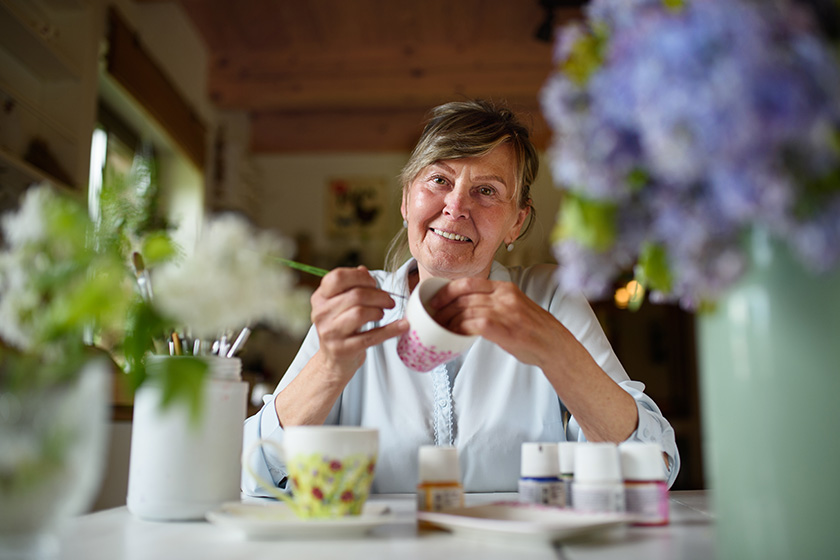The aging process brings about a symphony of changes in our bodies, one of the most subtle yet impactful being the shift in our internal clock or circadian rhythm. This internal timekeeper orchestrates a variety of biological functions, from sleep cycles to hormone regulation, and as we age, its tempo evolves. Understanding and embracing these changes is akin to learning a new dance with time, allowing us to move gracefully into our later years. This article aims to shed light on the significance of our aging internal clock, exploring how it influences our daily lives and offering practical advice on how to harmonize our lifestyle with its changing rhythms for a healthier, more fulfilling journey through the golden years.
Understanding Your Internal Clock
Our internal clock, scientifically known as our circadian rhythm, is an intricate biological system that governs the timing of various physiological processes. This internal timekeeper is influenced by environmental cues, most notably light and darkness, which help regulate our sleep-wake cycle, hormone production, and metabolism. The suprachiasmatic nucleus (SCN), a small region in the brain’s hypothalamus, acts as the master controller of this circadian rhythm, synchronizing our body’s functions with the 24-hour day.
As we age, our internal clock undergoes notable changes. Research has shown that the SCN becomes less responsive to light signals, leading to alterations in our sleep patterns and other circadian-regulated functions. Older adults often experience a shift in their sleep-wake cycle, tending to wake up earlier in the morning and feel sleepier earlier in the evening. This change, known as an advanced sleep phase, can impact the quality and duration of sleep, leading to fragmented sleep and decreased deep sleep stages.
Moreover, the production of melatonin, a hormone that regulates sleep, decreases with age. This reduction can further disrupt sleep patterns and make it more challenging to maintain a consistent sleep schedule. Additionally, age-related changes in body temperature regulation can affect the timing of sleep and wakefulness.
The Impact of Age on Your Internal Clock
The changes in our internal clock as we age can have a profound impact on our overall health and well-being. Disruptions to our circadian rhythm can lead to sleep disturbances, mood fluctuations, and even an increased risk of chronic illnesses such as diabetes and heart disease. Therefore, it’s crucial to pay attention to these changes and take steps to align our lifestyle with our internal clock.
Tips for Embracing Your Aging Internal Clock
Adjusting to the changes in our internal clock as we age is crucial for enhancing our quality of life. This section delves into ten insightful tips designed to help you harmonize with your body’s shifting rhythms. By implementing these strategies, you can nurture your well-being, ensuring a balanced and healthy aging process.
Prioritize Natural Light Exposure
Exposure to natural light is essential for maintaining a healthy internal clock. Try to get outside for at least 30 minutes each day, preferably in the morning. This can help regulate your sleep-wake cycle and improve your mood and energy levels.
Establish a Consistent Sleep Routine
As your internal clock shifts, it’s important to adapt your sleep routine accordingly. Aim for a consistent bedtime and wake-up time, even on weekends. This can help stabilize your circadian rhythm and improve the quality of your sleep.
Adjust Your Eating Habits
Your metabolism also changes as you age, which can affect your internal clock. Try to eat smaller, more frequent meals throughout the day to keep your energy levels stable. Avoid heavy meals and caffeine close to bedtime, as they can disrupt your sleep.
Stay Active
Regular physical activity can help keep your internal clock in sync. Engage in activities that you enjoy, such as walking, swimming, or yoga. Exercise not only boosts your energy levels but also promotes better sleep.
Embrace Mindfulness and Relaxation Techniques
Stress can disrupt your internal clock and lead to sleep disturbances. Incorporate mindfulness practices such as meditation or deep breathing exercises into your daily routine. These techniques can help reduce stress and promote a sense of calm, making it easier to fall asleep and stay asleep.
Listen to Your Body
Finally, it’s essential to listen to your body and pay attention to its signals. If you feel tired, allow yourself to rest. If you’re not sleepy at your usual bedtime, engage in a relaxing activity until you feel ready to sleep. By tuning into your body’s needs, you can better align your lifestyle with your internal clock.
Embracing your aging internal clock within the supportive environment of TerraBella Roswell transforms this journey into one of comfort and joy. Here, we acknowledge the natural shifts in circadian rhythms that come with aging, and our community is designed to help residents align their daily routines with their internal clocks. Through a variety of activities and amenities, TerraBella Roswell enhances sleep quality, boosts energy levels, and promotes overall well-being, all while providing a setting that encourages patience, understanding, and self-listening. By choosing TerraBella Roswell, residents can embrace these changes with grace and mindfulness, ensuring a vibrant and fulfilling life at every stage. Aging at TerraBella is not just about marking time; it’s about living in harmony with life’s rhythm and finding inner peace in our community.







